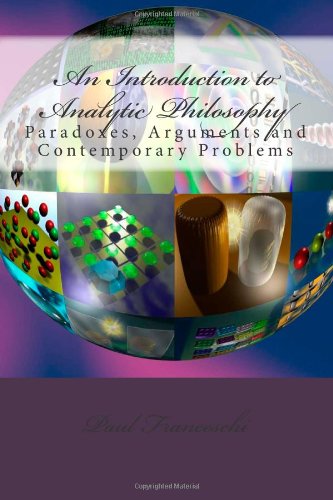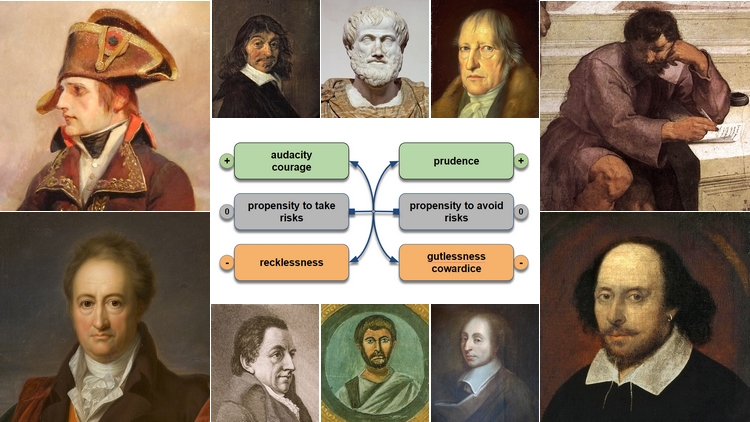This site presents my work in philosophy. It contains published articles and preprints. The texts relate to analytic philosophy, ontology, the study of concepts, cognition and psycho-pathological philosophy.

My work is primarily concerned with analytic philosophy and consists of proposed solutions to some philosophical paradoxes : the Doomsday argument, Hempel's paradox, Goodman 's paradox, the surprise examination paradox, the Sleeping Beauty problem, the Black-Leslie paradox of the spheres, the Simulation argument, etc.. A conceptual tool, the n-universes, which are useful for the study of philosophical problems is also presented.
An important area of interest is the study of reasoning in the field of psychopathology. Several texts also relate to cognition and cognitive distortions. Additions to the classical theory of cognitive distortions are exposed, and their applications in the field of psycho-pathological philosophy: a new conceptual framework for cognitive distortions, a specific account of personalization, and of over-generalization and labelling.
Lastly, there are texts on semantics and the study of concepts. These texts are based on a specific conceptual tool : the matrices of concepts. Recent applications to the dialectical plan, to paradigm analysis of a corpus of proverbs , to the analysis of the love-hate indifference triplet of concepts are also presented.
My work involves some fields that are apparently very different. However, most texts are underpinned by a particular philosophical doctrine , which can be defined as “dialectical contextualism”. And this doctrine has applications in analytical philosophy, psycho-pathological philosophy and the study of concepts. Its role as a methodological tool aimed at solving philosophical paradoxes is explained in more detail in my “Elements of dialectical contextualism”.

In this book, Paul Franceschi provides us with an introduction to analytic philosophy. In a concrete way, he chooses to describe forty paradoxes, arguments or philosophical issues that represent so many challenges for contemporary philosophy and human intelligence, for some paradoxes of millennial origin—such as the Liar or the sorites paradox—are still unresolved in the present day. Some other philosophical puzzles, however—such as the Doomsday argument—appeared only recently in the literature. The author strives to introduce us clearly to each of these problems as well as to major attempts that have been formulated to solve them.
“I’m really impressed by this very neat and stimulating book. I highly recommend it both to students for pedagogy and general culture (prisoner’s dilemma, twin-earth, etc.), and to professionals as well for the reference tool and even more generally to those who like to think.”
Julien Dutant, Philotropes, Philosophical blog

My course duration: 3h20 entitled “How to make a dialectical plan” is online on Udemy. The course is a pedagogical and practical version of the notions contained in my articles On a Class of Concepts and The Dialectical Plan: For an Alternative to the Paradigm, published in the journal Semiotica. It is a step-by-step method, with exercises, to learn how to make a dialectical plan, using matrices of concepts.
In the paper “A Dichotomic Analysis of the Surprise Examination Paradox” (originally published in French under the title Une analyse dichotomique du paradoxe de l’examen-surprise, I offer a comprehensive and novel approach to resolving the Surprise Examination Paradox (SEP). The proposed solution is grounded in a detailed analysis of the paradox, incorporating previous literature and introducing new conceptual distinctions. The paper is structured into five main sections, each contributing to the development of the proposed solution....
This paper presents a novel approach to resolving the Sleeping Beauty problem by drawing an analogy with a hypothetical “hyper-entanglement urn.”
The Hyper-Entanglement Urn: I begin by introducing a thought experiment involving an urn containing red and green balls. Some red balls are hyper-entangled with green balls, meaning that removing a red ball also removes its entangled green counterpart, and vice versa. This urn serves as an analogy for understanding the Sleeping Beauty problem, highlighting the unique properties of hyper-entangled objects....
An Introduction to Analytic Philosophy In this book, Paul Franceschi provides us with an introduction to analytic philosophy. In a concrete way, he chooses to describe forty paradoxes, arguments or philosophical issues that represent so many challenges for contemporary philosophy and human intelligence, for some paradoxes of millennial origin—such as the Liar or the sorites paradox—are still unresolved in the present day. Some other philosophical puzzles, however—such as the Doomsday argument—appeared only recently in the literature....
How to Make a Dialectical Plan My course (duration: 3h20) entitled “How to make a dialectical plan” is online on Udemy.
The course is a pedagogical and practical version of the notions contained in my articles On a Class of Concepts and The Dialectical Plan: For an Alternative to the Paradigm, published in the journal Semiotica. It is a step-by-step method, with exercises, to learn how to make a dialectical plan, using matrices of concepts....
A Brief Introduction to N-universes Preprint. I present in this paper the basic elements of the n-universes, from an essentially pragmatic standpoint, i.e. by describing accurately the step-by-step process which leads to the modelling of a thought experiment. pdf
A Two-Sided Ontological Solution to the Sleeping Beauty Problem Preprint published on the PhilSci archive.
I describe in this paper an ontological solution to the Sleeping Beauty problem. I begin with describing the hyper-entanglement urn experiment. I restate first the Sleeping Beauty problem from a wider perspective than the usual opposition between halfers and thirders. I also argue that the Sleeping Beauty experiment is best modelled with the hyper-entanglement urn. I draw then the consequences of considering that some balls in the hyper-entanglement urn have ontologically different properties from normal ones....
Differential Cognitive Treatment of Polythematic Delusions and Generalised Anxiety Disorder English translation of a paper published in french under the title “Traitement cognitif différentiel des délires polythématiques et du trouble anxieux généralisé“, in the Journal de Thérapie Comportementale et Cognitive, 2011, vol. 21-4, pp. 121-125.
Schizophrenia is often associated with other physical and mental problems. Generalized anxiety disorder is notably one of the comorbid disorders which is often linked to schizophrenia....
Post-publication of a review of John Leslie, Infinite Minds Post-publication of the review appeared in Philosophiques, Volume 30, number 2, Autumn 2003.1
Review of John Leslie, Infinite Minds, Oxford, Oxford University Press, 2001, 234 p.1
Paul Franceschi
Infinite Minds is the fourth book of John Leslie, which follows Value and Existence (1979), Universes (1989) and The End of the World (1996). Infinite Minds presents a very rich content, and covers a number of particularly varied subjects....
On a Class of Concepts Posprint in English (with additional illustrations) of a paper published in French in Semiotica, vol. 139 (1-4), 2002, 211-226, under the title “Une Classe de Concepts”.
This article describes the construction, of philosophical essence, of the class of the matrices of concepts, whose structure and properties present an interest in several fields. The paper emphasises the applications in the field of paradigmatic analysis of the resulting taxonomy and proposes it as an alternative to the semiotic square put forth by Greimas....
This is an extended summary of my paper, “The Doomsday Argument and Hempel’s Problem”, that delves into the logical intricacies of Hempel’s Problem (HP) and its implications in various contexts, notably distinguishing between two cases: the unparadoxical case of a finite urn and the paradoxical case where the reference class is unspecified.
Hempel’s problem Hempel’s Problem revolves around the logical equivalence of two statements:
(H) All ravens are black
(H’) Everything that is non-black is a non-raven...
 My work is primarily concerned with analytic philosophy and consists of proposed solutions to some philosophical paradoxes : the Doomsday argument, Hempel's paradox, Goodman 's paradox, the surprise examination paradox, the Sleeping Beauty problem, the Black-Leslie paradox of the spheres, the Simulation argument, etc.. A conceptual tool, the n-universes, which are useful for the study of philosophical problems is also presented.
My work is primarily concerned with analytic philosophy and consists of proposed solutions to some philosophical paradoxes : the Doomsday argument, Hempel's paradox, Goodman 's paradox, the surprise examination paradox, the Sleeping Beauty problem, the Black-Leslie paradox of the spheres, the Simulation argument, etc.. A conceptual tool, the n-universes, which are useful for the study of philosophical problems is also presented.

